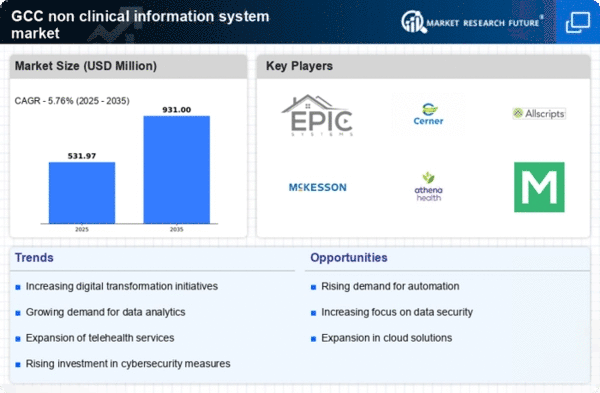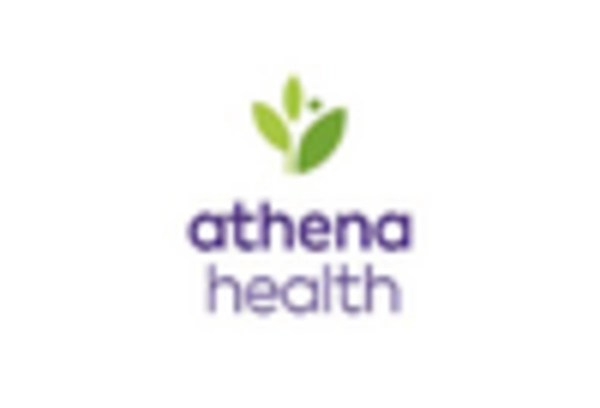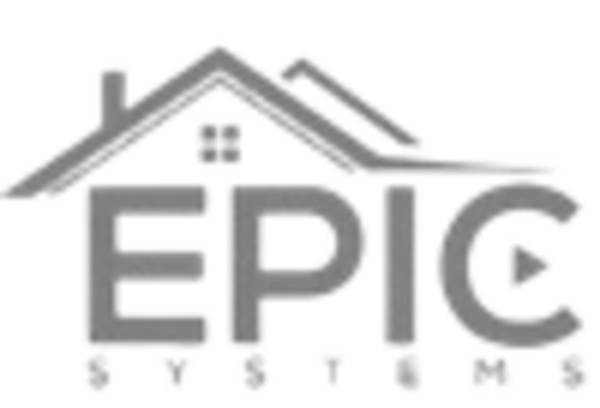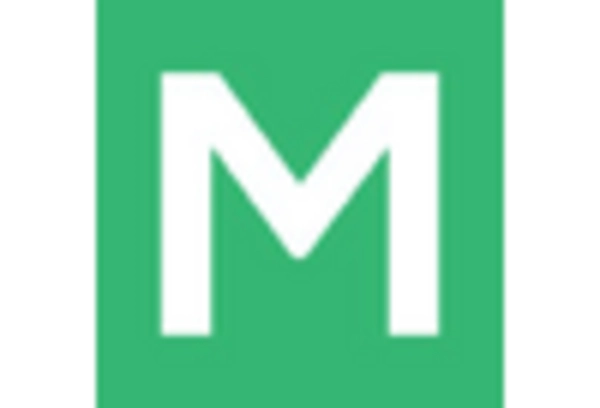Growing Focus on Patient Experience
The non clinical-information-system market is increasingly driven by a growing focus on enhancing patient experience in the GCC. Healthcare providers are recognizing that improving administrative processes can lead to better patient satisfaction and retention. Systems that streamline appointment scheduling, billing, and communication are becoming essential tools for organizations aiming to elevate the patient journey. As a result, the market is projected to grow by 5% annually as healthcare facilities invest in solutions that prioritize patient-centric approaches. This shift towards a more holistic view of patient care is likely to further propel the demand for innovative non clinical-information-systems.
Rising Demand for Operational Efficiency
The non clinical-information-system market is experiencing a notable surge in demand for operational efficiency across healthcare facilities in the GCC. Organizations are increasingly recognizing the need to streamline administrative processes, reduce costs, and enhance productivity. This trend is driven by the growing pressure to optimize resource allocation and improve patient care outcomes. According to recent data, the GCC healthcare sector is projected to grow at a CAGR of 7.5% from 2025 to 2030, indicating a robust market for non clinical-information-systems that facilitate these efficiencies. As healthcare providers seek to implement solutions that minimize manual tasks and automate workflows, the non clinical-information-system market is likely to expand significantly.
Technological Advancements in Healthcare
Technological advancements are playing a pivotal role in shaping the non clinical-information-system market within the GCC. Innovations such as advanced analytics, machine learning, and mobile applications are transforming how healthcare organizations manage non-clinical data. These technologies enable more efficient data processing and enhance decision-making capabilities. The GCC region is witnessing an increase in investments in health IT infrastructure, with spending projected to reach $2 billion by 2026. This influx of capital is likely to drive the adoption of sophisticated non clinical-information-systems that can leverage these advancements, thereby fostering a more integrated healthcare ecosystem.
Regulatory Compliance and Standardization
In the GCC, the non clinical-information-system market is increasingly influenced by the need for regulatory compliance and standardization. Governments are implementing stringent regulations to ensure that healthcare providers adhere to best practices in data management and patient privacy. This regulatory landscape compels organizations to invest in non clinical-information-systems that can support compliance with local and international standards. For instance, the introduction of data protection laws has led to a heightened focus on systems that ensure secure handling of sensitive information. As a result, the market is expected to witness a growth rate of approximately 6% annually as healthcare entities prioritize compliance-driven solutions.
Increased Investment in Health IT Infrastructure
Investment in health IT infrastructure is a critical driver for the non clinical-information-system market in the GCC. Governments and private entities are allocating substantial resources to enhance healthcare technology capabilities. This investment is aimed at modernizing existing systems and integrating new technologies that improve operational efficiency and data management. Recent reports indicate that the GCC health IT market is expected to reach $3.5 billion by 2027, reflecting a strong commitment to advancing healthcare delivery. As organizations seek to upgrade their non clinical-information-systems, the market is likely to experience robust growth, driven by this influx of capital and resources.
















